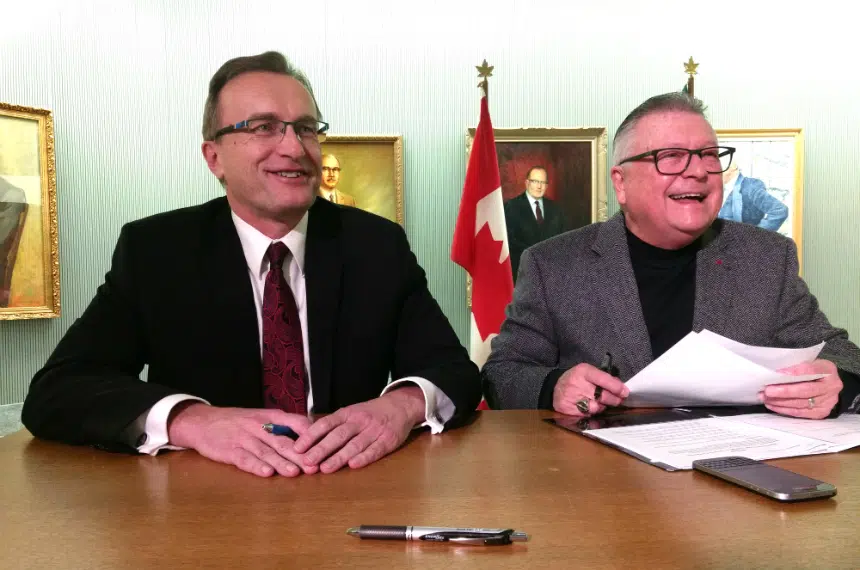The federal government announced on Tuesday it would contribute $5 million over the next five years to help fight addiction in Saskatchewan.
That money is part of a bilateral agreement with the province and will go toward recruiting and training more health care workers that can provide opioid-substitution therapy, counsellors and social workers.
Funds will also be used to extend the reach of services like telehealth, to improve access to treatment for people with opioid or crystal meth addictions in remote communities.
“It’s to include rural Saskatchewan because the problem is not exclusively an urban one. It is far-flung, it is everywhere,” said MP Ralph Goodale, speaking on behalf of the federal health minister Ginette Petitpas Taylor.
“That’s why the notion of making treatment more readily available, everywhere, including by remote and telehealth techniques simply makes sense in a province like Saskatchewan with such far-flung geography.”
Saskatchewan is the fifth province to sign a deal under the federal government’s Emergency Treatment Fund.
The money announced on Tuesday matches $7.4 million the province has committed to expanding access to opioid-substitution therapy.
While in-patient treatment is not included in the funding, the province’s health minister Jim Reiter said it’s a priority for the provincial government.
“The huge percentage of people seeking treatment, it’s not in-bed. It’s out-patient treatment,” Reiter said. “Having said that, you’re going to see in the next number of months, you’re going to see increases in treatment beds as well.”
The official Opposition commended the federal government on the funding announcement but the NDP’s health critic said the province needs a comprehensive plan to address its addiction problem.
“We need a plan that includes prevention and awareness, increased treatment, harm reduction and I don’t see any of that,” said Danielle Chartier.
“(Alberta has) a really comprehensive strategy that they’ve put in place but that 10-year Mental Health and Addictions Action Plan doesn’t deal with what we’re dealing with right now.”







